The Giornate degli Auttori section of the 81st Venice Film Festival gave the world premiere of the only Colombian film selected for the event: Soul of the Desert. Directed by anthropologist and filmmaker Mónica Taboada Tapia, the first to represent her country at the festival, the film (produced by Beto Rosero of Guerrero Films) takes us to the arid landscapes of La Guajira, Colombia, where Georgina Epiayu, a transgender Wayúu woman in her sixties, aware that her time is running out, decides to change her existence. To begin with, she needs a legal identity that recognizes her as a full citizen and allows her to vote, for example, and at the same time she tries to reconnect with her siblings. Bureaucracy and complex family ties, the intolerance of the community, and the return to a terrifying scenario she survived are the obstacles Georgina (formerly Jorge) faces throughout the documentary, which updates a context almost unknown to the viewer. In contrast, the protagonist is an example of goodness and resilience, tireless in her search for justice and recognition.
On a stormy afternoon, which radically changed the sultry atmosphere of the Venice Lido on the first days of the festival, dodging as best we can a torrential rain, we met with Mónica Taboada Tapia to talk about her film and what it meant to her personally, in the hours before learning that she would be recognized with the Queer Lion, an award that has gone in previous editions to films such as A Single Man (Tom Ford, 2009) or The Danish Girl (Tom Hooper, 2015) and which rewards the best film with a homosexual theme and culture.
EVA PEYDRÓ: To begin with, I would like you to introduce us to the genesis of this project in which anthropology is so important. Did your interest in this discipline influence your choice of subject matter for your first feature film?
MÓNICA TABOADA TAPIA: I studied anthropology, but I didn’t finish because, when I was studying, I thought I would end up teaching, and I thought, well, that’s not what I imagined: using carbon 14 on bones and artifacts. Suddenly I thought I’d like to do something more creative and I wanted to be a visual artist, but it didn’t work out and I ended up studying and finishing my degree after a long time.
Do your previous short films also deal with this subject?
There is one that takes place on a beach in Cartagena (Colombia), a city symphony with the inhabitants passing through and the people who stay on the beach. It was at IPFA (International Documentary Film Festival Amsterdam) last year and is called Red Flag. I also directed the short film Two Spirits (2021), with Georgina as well. The first one I directed is Fidel (2012) which is fiction, about a dog that gets lost, that was made a lot of years ago, people remember it, and these days we’re re-releasing it or something.
So you already knew Georgina and decided to turn that idea into Soul of the Desert? How did you find such a singular character in an isolated place? That perspective you offer of an unknown Colombia, which seems like Mauritania, is so parallel to the loneliness of the character…
That character has a lot to do with my family history because let’s say I have a history divided between the paternal line and the maternal line. And in my maternal line, I saw, well, obviously my mother’s skin color, my grandmother’s skin color, but we didn’t talk about that. I remember once I saw a beautiful girl on a television program and I said to my grandmother, look, she looks like you. My grandmother got very upset. She said I am not black. I realized that there was something I couldn’t talk about. And again, my grandfather said something like no, your grandmother is cool, she’s from La Guajira. But my grandmother scolded him a lot and didn’t let him speak. And that’s when I started to get curious, I want to go to La Guajira… there’s something here, there’s something, a secret. I want to know more. And then when I saw a news item about Georgina, a video on a small channel in Colombia, where she told about the attack she had suffered, I couldn’t stop crying thinking: I can’t believe this is happening to a human being on this planet. I can’t believe it. I have to meet this person. And that night I dreamt about her. They were different images than I had seen and I said to myself: Prophetic, I’m going to meet her. And in August I met her. One of the people from the production team contacted her in La Guajira, we arrived and she welcomed us with open arms.
Did she receive your proposal well, then?
One person she worked with, I think he owns a drugstore in Uribe, the indigenous capital of Colombia, told us Look, if you are going to work with her, it can’t be a shot and run, because other times they have come, filmed her and left. She is a person who needs help, you need to build a certain relationship with her. And it was the fairest and the best thing to do because of all that I have learned. I’m thankful for that learning and for what I’ve also learned about my family.
Georgina’s story is incredible, she is a survivor, and she made the transition in Colombia a long time ago, right?
Yes, almost 50 years ago, as a woman, she went and asked for her citizenship card with a lot of other women and she had to go and pick it up, say a year later, and she never never went to pick it up and from then on a huge problem was created. She remained undocumented, as if in limbo for more than 45 years, in which the system did not allow her to have her ID card because her fingerprints did not correspond to the identity she had initially requested, nobody knew what was going on, the data was sent through those old computers to Bogotá and Bogotá gave no response. There was no communication, nothing happened. Until finally the thing was unblocked too, there were even threats to involve the media and they made a scandal so that her identity would be recognized. The registrar told us: This is a small war and the strongest wins. A person’s life was at stake, because in Colombia, if you don’t have a cédula, you don’t exist. And for her, who doesn’t speak Spanish well…, you are nothing.
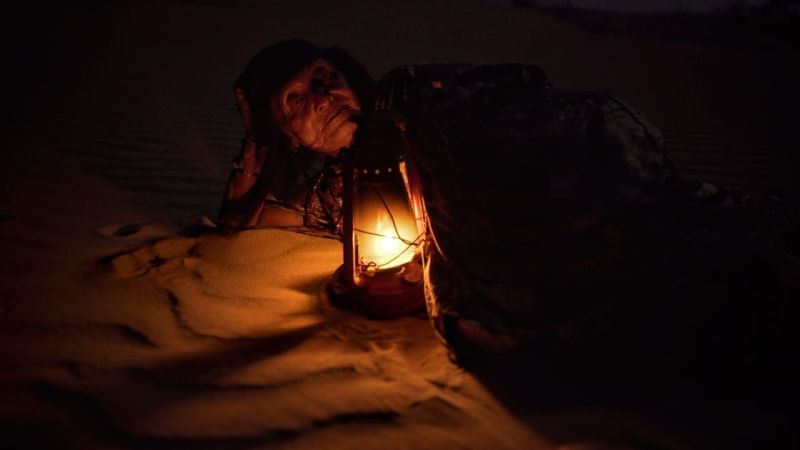
And she has like a triple status of being among the most marginalized people: she is indigenous, a trans person, and also a speaker of a very minority language. Does her community live on a reservation?
Yes, in Colombia there are reserves and let’s say that the reserves have authorities, the question is that in this particular one, the person in authority is a relative of the people who tried to burn her. There was a reconciliation between the authorities and her, she was able to stay there and now she is protected by the neighbours. But imagine how delicate this situation is, she is still alive, it shows that there is a lot of strength on her part, as many trans people in Colombia do not survive beyond the age of 40, especially if they have few funds. And if they don’t have a university degree, they also have to go back to living in an environment that marginalized them in this way. It takes a lot of courage to live with those people who gave you away. But look at the level of guilt in the community, so many of the people ended up committing suicide.
The story of Soul of the Desert could have been told in many ways, you start from a journey where the landscape accompanies her and leaves us with very engraved images, she carries her own path and her inner story, and it is perceived in the way she interacts with those she comes across, she does not do it naturally, as if showing an apprenticeship in survival.
Yes, totally, because many things are not told in the film that are quite terrible, but it wasn’t necessary to tell them that. It’s as if you had seen more, of course, but not everything had to be told because it was already impossible to digest. He has had a partner, he separated and married a woman because Georgina couldn’t have children. He simply left one day and from then on she started to be a trans person on her own. The journey was at the center of the initial film that I had thought of as an artist, as a director, as a debut film, a somewhat poetic journey, something very artistic, something very disruptive. But in the end, the reality ends up being so strong… The issue of identity starts from the physical identity of a role.
This is how the film begins.
At the start, there is the production assistant, to whom we say well, you have to get her to tell, what’s going on. But we didn’t know that it would also register her confused. The officials were confused. And she tells it like with a resigned patience over and over and over and over again, over and over again. She never loses her tone of resignation.
What influences did you have in your approach to feature-length documentaries?
I had already made documentaries and even documentaries seemed easier when I started, and I didn’t know the investment of time and spirit it was going to require. But let’s say that the documentary started as something that could have been influenced by other films and in the end ended up having a life of its own, even beyond me. Like if it had had an ego, it would have wanted to impose my artistic and personal point of view, it would have had to silence the voices of these people. Maybe that’s why it sounds so organic because maybe it was a negotiation with reality and with something or someone bigger than me. Bigger, like as an artist or as a director it gave me a lot of respect to deal with a subject almost like a monk, is that there are people who are dying of hunger in a region of the country. Some people can’t speak Spanish, and can’t read or write. Some people are not even recognized by a state that is already in Latin America, that is already in the global south. You have to be honest with that and be aware that there can be no triviality.
In one of your films, 90 Degrees, you were mentored by Abbas Kiarostami, what was the experience like?
He gave a workshop in Colombia, which I attended, and it was very strange because he had a very particular style of filmmaking. And at that time, Iranian cinema was very transgressive in terms of minimalism and Iranian identity. He was a character, a human being, a man with a strong character, but at the same time there are phrases of his that I never forgot. He had this adaptability, the ability to disappear when there was someone stronger or with more character than him. Bearing in mind and knowing what his objective was, he simply disappeared and made himself small to be able to record what he needed to record at that moment or when he needed to impose himself, he made himself big and imposed himself to be able to record what he needed to record at that moment. That marks you, and he was also so honest when he told how he had recorded certain things that were not politically correct, and he told it so naturally, with such honesty, that I said well… for example, he said something a bit sad to the children to make them cry. I never had to do that, but he told it and he did it in a way that nobody judged. And also this thing about how he adapted to the environment to be able to record what he wanted to record, in the case of Taste of Cherry (1997) there was someone who had a very strong character. And he said to himself that if he started arguing with this person, the film would not be possible. So, he simply went along with him to film and film, in other words, a lot of very simple practical things that made you think: You have a goal and that is to finish this film.
What difficulties did you face during the filming of Soul of the Desert?
In Colombia, power is being reconfigured and people who have been marginalized and ignored by the system are now having more power and are going to have more power. I don’t know if it goes beyond the current government, but there are collectives that have been historically ignored and are now demanding justice. So, it’s as if they were on my back. Watching me, that’s a reality. So, let’s say that made me watch my step a lot too. Yes, I took risks, many times I took risks, but knowing that what I was doing could be judged. When I go back to Colombia, this is going to be put under a magnifying glass and people are going to say either that I am a witch or that they understand what I did. I believe that at that moment the common good will prevail. I tried not to censor myself, because at one point, because of the social impact, I did, but I told myself that I had to put fear aside. I am a person who takes a lot of risks, and sometimes I am impetuous, but when I had all the spotlights on me, I felt like they were telling me that you are talking about a community to which you don’t belong.
You could even be accused of cultural appropriation, when you do not exercise humiliation, but rather defence.
This film may be relevant now. In Colombia people are very concerned about what people will say, tourism is very important for the country and they try to maintain a good image: Let’s not talk about this, what will they think… Let’s not tell our neighbors or Spain, let’s not tell the Europeans…
On the contrary, it can give a more open and honest impression.
This is why we talk about the issue of minority, ethnicity, or gender, I don’t understand why transphobia is such a big issue, why there are like so many discourses around it and so many gender police.
Do you keep in contact with Georgina?
I talk to her every week and she makes jokes and asks me about my mum…
Has anything changed in your family after Soul of the Desert and your research?
Of course, after the film I went back to my family’s past, to the photos of my great-great-grandmother wearing an afro blanket. That is to say, if I hadn’t gone to La Guajira to film Georgina, they would never have shown me these photos. And I don’t understand why that happened either, although I know that there is a burden of pain of having been forcibly brought to America. It’s something they carry around with them. And there is a subject that is not talked about so much and that is that there is miscegenation may or may not have been forced because I believe that there were also relationships for love, but we also know that many times it had to do with being forced to relate or with trying to whiten a certain skin color or a certain origin. So, all of that is so mixed up and is part of the past of so many families, of so many people, that it is easier to avoid it than to talk about it than to talk about all that burden that has to do with slavery. It’s easier to just pass yourself off as white and forget what happened.
Do you know the Mexican film The Woman of Stars and Mountains, by Santiago Esteinou? Georgina reminds me of its protagonist.
It has been recommended to me and I haven’t been able to see it yet. Thank you for mentioning it, because I would love to see it.

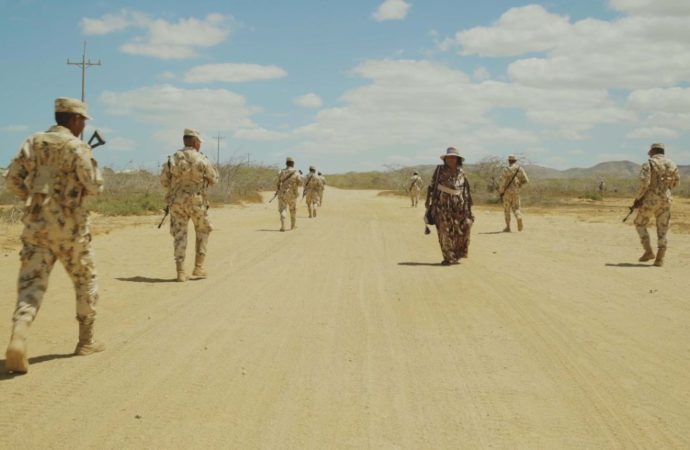


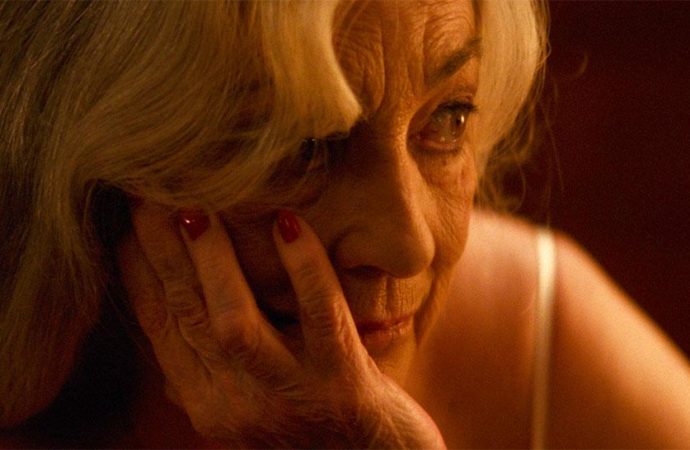
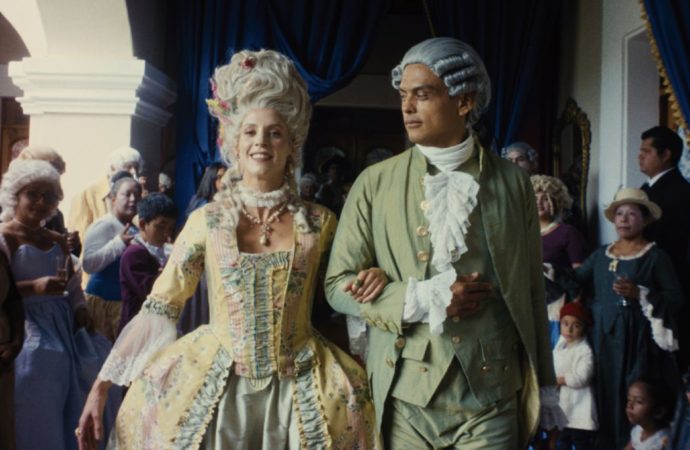


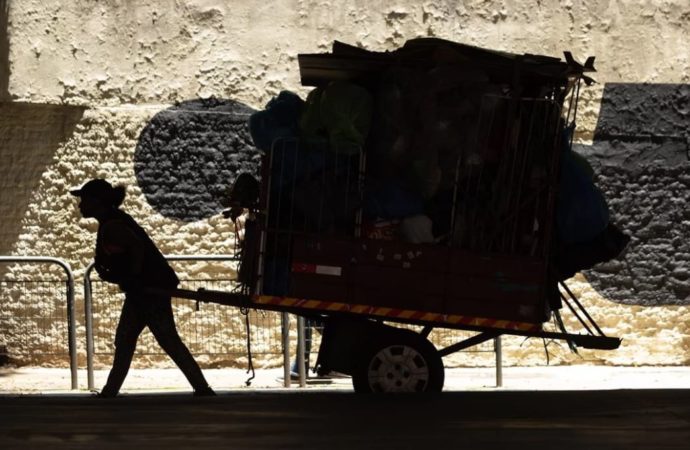
No one has posted any comments yet. Be the first person!